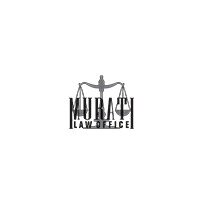Best Faith-Based Law Lawyers in Ulcinj
Share your needs with us, get contacted by law firms.
Free. Takes 2 min.
List of the best lawyers in Ulcinj, Montenegro
About Faith-Based Law in Ulcinj, Montenegro
Faith-Based Law in Ulcinj, Montenegro, encompasses the intersection of religious principles and legal frameworks. Ulcinj, with its diverse religious communities, recognizes the importance of faith in legal matters. The city accommodates the legal needs of different faiths, including Islam, Orthodox Christianity, and Roman Catholicism, by incorporating their canons and doctrines into civil legal discussions. Faith-Based Law typically addresses issues such as family law, inheritance, and community governance within a religious context.
Why You May Need a Lawyer
Individuals may require legal assistance in Faith-Based Law under various circumstances, such as:
- Navigating family disputes where religious doctrines play a central role in conflict resolution.
- Handling inheritance cases where religious laws impact the distribution of assets.
- Interpreting the interaction between civil law and religious obligations.
- Supporting religious organizations in ensuring compliance with both religious canons and civil law provisions.
- Assisting in marriage and divorce proceedings as recognized by both religious and secular authorities.
Local Laws Overview
In Ulcinj, Faith-Based Law is influenced by a tapestry of legislation that respects the cultural and religious diversity of the locale. The Montenegrin Constitution guarantees freedom of religion, allowing faith communities the autonomy to govern their internal affairs, provided they comply with overarching civil laws. Key aspects include:
- Family Law: Religious ceremonies are often integrated with civil requirements, recognizing marriages and divorces within a religious context.
- Succession Law: Religious principles may guide the division of estates, especially in communities led by religious laws.
- Religious Organizations: These entities must register with governmental bodies to gain legal recognition and benefits.
Frequently Asked Questions
What is Faith-Based Law?
Faith-Based Law refers to the legal systems and practices grounded in religious teachings and principles, used alongside or within civil legal frameworks.
Is Faith-Based Law legally recognized in Montenegro?
Yes, Faith-Based Law holds significance within specific religious communities, and Montenegro guarantees freedom of religious practice, permitting faith-based adjudication within the civil law boundaries.
Can I get divorced through a religious court in Ulcinj?
Religious courts can conduct divorce proceedings in line with religious doctrines, but such divorces need civil court recognition to be legally effective in Montenegro.
How do religious laws affect inheritance matters?
In many religious communities, inheritance principles follow religious guidelines, which may supersede civil regulations if all affected parties agree.
Do religious organizations need legal registration?
Yes, in order to operate officially, religious organizations must register with the relevant government agencies in Montenegro.
Are marriages conducted by religious authorities recognized by the state?
Marriages conducted in religious ceremonies can be recognized by the state if they meet specified civil legal requirements.
What role do religious leaders play in legal disputes?
Religious leaders often mediate disputes or provide counsel based on religious values, which can be integral particularly within their communities.
Can religious principles influence child custody decisions?
Religious principles might inform child custody decisions, but ultimate rulings are based on civil law considerations prioritizing the best interest of the child.
Are there specific laws for Islamic marriages in Ulcinj?
Yes, Islamic marriages must comply with both Sharia principles and Montenegrin civil laws to be recognized legally.
How can a lawyer assist with Faith-Based legal matters?
A lawyer knowledgeable in both civil and Faith-Based Laws can guide individuals through legal intricacies where religious and state laws intersect.
Additional Resources
For those seeking additional assistance or information, consider reaching out to:
- Ministry of Human and Minority Rights of Montenegro
- Local religious councils or community leaders
- Non-governmental organizations dedicated to religious freedoms
- Legal aid clinics specializing in Faith-Based Law
Next Steps
If you require legal assistance in Faith-Based Law in Ulcinj, it's advisable to take the following steps:
- Consult with a local lawyer experienced in both civil and religious legal systems.
- Engage with your religious organization for initial guidance.
- Gather all relevant documents that relate to your legal issue.
- Inquire about legal clinics or community organizations that might offer free or affordable counsel.
Lawzana helps you find the best lawyers and law firms in Ulcinj through a curated and pre-screened list of qualified legal professionals. Our platform offers rankings and detailed profiles of attorneys and law firms, allowing you to compare based on practice areas, including Faith-Based Law, experience, and client feedback.
Each profile includes a description of the firm's areas of practice, client reviews, team members and partners, year of establishment, spoken languages, office locations, contact information, social media presence, and any published articles or resources. Most firms on our platform speak English and are experienced in both local and international legal matters.
Get a quote from top-rated law firms in Ulcinj, Montenegro — quickly, securely, and without unnecessary hassle.
Disclaimer:
The information provided on this page is for general informational purposes only and does not constitute legal advice. While we strive to ensure the accuracy and relevance of the content, legal information may change over time, and interpretations of the law can vary. You should always consult with a qualified legal professional for advice specific to your situation.
We disclaim all liability for actions taken or not taken based on the content of this page. If you believe any information is incorrect or outdated, please contact us, and we will review and update it where appropriate.








